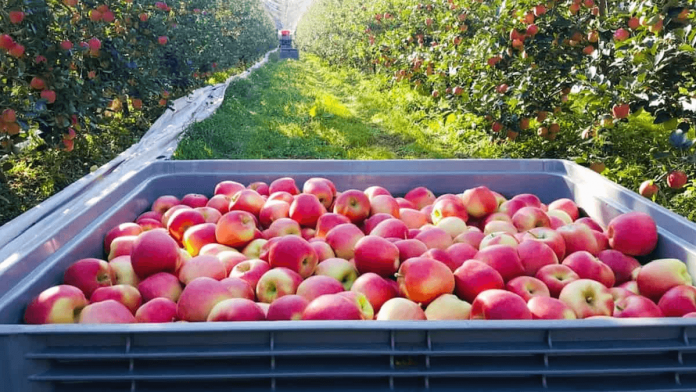News in Brief:
– Germany secures access for its apples in the Chinese market, offering a significant opportunity for local growers amidst production challenges.
– Stringent phytosanitary requirements and meticulous quality assurance protocols underscore the industry’s commitment to meeting Chinese import standards, ensuring compliance and market success.
China recently opened its market to apple export from Germany, following recent diplomatic agreements. This development signals a significant opportunity for German apple growers amidst a challenging production landscape.
German apple production faced a setback in 2023, with adverse weather conditions causing a notable decline to 941,200 metric tons. This downturn, a 12% drop from the previous year, disrupted the usual rhythm of the industry, impacting local farmers and stakeholders.
With approximately 75% of German apples sold fresh, the opening of the Chinese market presents a timely opportunity for growers. Since 2016, efforts have been underway to penetrate the lucrative Chinese market, with this recent breakthrough heralding a new chapter for the industry.
China’s General Administration of Customs has outlined stringent phytosanitary requirements for apple imports, citing 15 quarantine pests of concern. German orchards seeking to export must adhere rigorously to good agricultural practices and pest management protocols to ensure compliance.
Navigating cold treatment regulations
To meet Chinese standards, apples undergo meticulous processing, including washing, disinfecting, and sorting to guarantee impeccable quality. Technical personnel conduct thorough inspections, with stringent criteria governing packaging plants qualified for export.
Cold treatment stands as a mandatory requirement, with prescribed temperature thresholds and duration stipulated for successful export. These measures underscore the meticulous attention to detail required in meeting Chinese import standards.
For German apple farmers, access to the Chinese market represents more than just economic opportunity; it signifies resilience and adaptability in the face of challenges. This newfound avenue promises to bolster the industry’s stability and resilience, offering a ray of hope amidst uncertainty.



